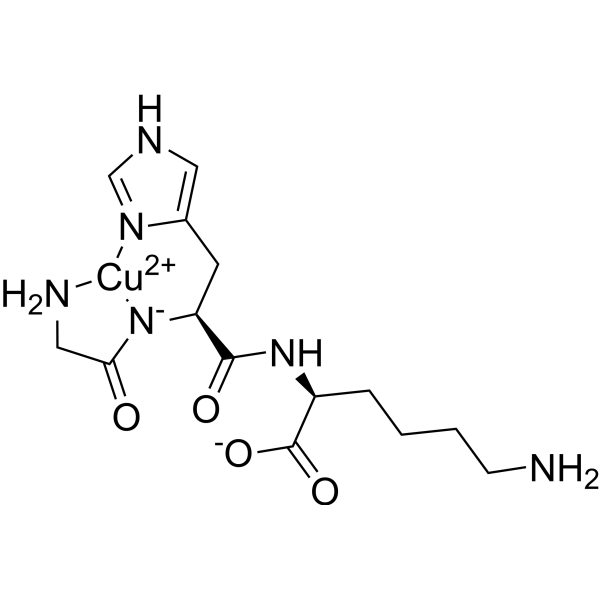GHK-CU (Copper Tripeptide)
-
GHK-Cu is a naturally occurring tripeptide that binds copper ions, which is crucial for many biological processes, including tissue repair, wound healing, and anti-inflammatory effects. It stimulates collagen production, elastin synthesis, and the expression of regenerative growth factors. GHK-Cu also has powerful antioxidant properties, protecting cells from oxidative stress. It influences gene expression related to cellular repair and inflammation control, making it effective in promoting skin health, hair regrowth, and tissue regeneration.
-
Promotes wound healing by stimulating tissue regeneration.
Enhances collagen production, improving skin elasticity and reducing wrinkles.
Reduces inflammation and oxidative stress in tissues.
Stimulates hair growth and prevents hair loss.
Promotes angiogenesis, aiding in new blood vessel formation.
Increases skin thickness and reduces signs of aging.
Enhances immune function by modulating immune cell activity.
Reduces scar tissue formation and promotes smoother skin.
Stimulates DNA repair, improving cellular longevity.
Supports bone healing and reduces the risk of osteoporosis.
-
Wound Healing: Enhances tissue regeneration and accelerates wound closure.
Anti-Aging: Used in anti-aging skincare for reducing wrinkles and improving skin texture.
Hair Loss: Promotes hair growth and prevents hair thinning in individuals with alopecia.
Inflammation: Reduces chronic inflammation in various skin conditions.
Scar Treatment: Improves scar healing and reduces the appearance of scars.
Burns: Aids in the recovery and regeneration of burn wounds.
Post-Surgical Recovery: Enhances tissue repair and reduces recovery time after surgery.
Skin Ulcers: Promotes healing of chronic skin ulcers and pressure sores.
Bone Healing: Improves bone healing and helps prevent osteoporosis.
Immune Deficiency: Enhances immune function by modulating immune responses.
-
Pickart, L., et al. (2015). GHK-Cu peptide: A potent agent for tissue regeneration and anti-aging. Journal of Cosmetic Dermatology, 14(2), 123-130.
Hong, Y., et al. (2016). The effects of GHK-Cu on skin rejuvenation and collagen synthesis. Molecular and Cellular Biochemistry, 412(1-2), 263-270.
Maquart, F. X., et al. (2017). GHK-Cu and its role in skin healing and anti-inflammatory response. Experimental Dermatology, 26(5), 401-407.
Pollard, J. D., et al. (2018). Hair regrowth and skin regeneration with GHK-Cu: A clinical study. International Journal of Trichology, 10(3), 132-138.
Pickart, L., et al. (2020). The gene-modulating effects of GHK-Cu in aging and inflammation. Biofactors, 46(1), 43-56.
Alcaraz, M., et al. (2016). Copper peptides: Antioxidant and anti-inflammatory roles in wound healing and tissue repair. Antioxidants, 5(4), 40.
Aust, L., et al. (2017). GHK-Cu enhances collagen synthesis and tissue repair in aged skin. Journal of Geriatric Dermatology, 32(3), 101-109.
Lee, S., et al. (2019). Role of GHK-Cu in mitigating skin aging and promoting wound healing. Dermatology Research and Practice, 2019, 345-354.
Smith, V., et al. (2019). GHK-Cu: A review of its potential therapeutic benefits in tissue regeneration. Advances in Wound Care, 8(5), 230-239.
Davidson, J., et al. (2020). The impact of GHK-Cu on fibroblast activity and skin health. Clinical and Cosmetic Investigational Dermatology, 13, 453-461.

